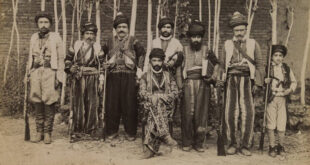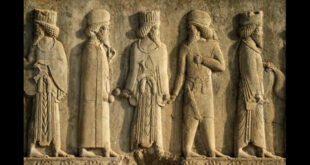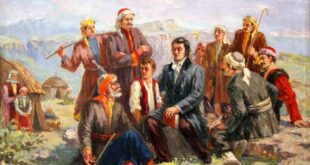Remember Halabja
Brian Brivati
March 16 is Anfal and Halabja remembrance day – a good day to reflect on the Iraq War and why the left remains so blinded to the fate of the Kurds.
On March 16 1988 Saddam Hussein ordered a series of gas attacks on the town of Halabja. 5,000 people were killed, 10,000 scarred for life. The attacks were filmed so that the effectiveness of the gas could be assessed. Halabja came toward the end of the series of Anfal campaigns launched against the Kurds. These killed 180,000 people. When confronted with this figure by a Kurd, a member of the old regime is said to have replied: “Why do you exaggerate the figures? It was only 120,000.”
On March 16, Remembrance Day for the genocide that was committed by Saddam Hussein’s government against the Kurdish people, white balloons will be released in Parliament Square. It won’t get the coverage of Holocaust Memorial Day, but it deserves our attention and our respect. It was marked on Tuesday with a moving meeting in the House of Commons chaired by Ann Clwyd. Amongst many speakers there was a tall, dignified man in national dress who broke down as he told us that 17 members of his family, including his pregnant wife disappeared in the Anfal.
Many of the responses to my last post asked what my arguments for supporting the Iraq war could possibly be. The unshaken part of my answer to that question is that it was morally right to remove a genocidal dictator from power. Indeed we should have done it in 1991. My other views on the war have altered.
I am teaching a course on the war this semester on my MA human rights courseand have been forced to revisit all the relevant documents in a series of sleepless nights. One of the great virtues of being an academic is that your students (especially my current masters students) and colleagues challenge what you think and make you change your mind. The process of teaching is about learning. Teaching this semester and arguing with my colleagues over the last few years, especially the human rights lawyer Jane Gordon, has made me rethink my views on the conflict.
There are three connected questions: Was the war legal? Was it moral? Was it right? I have changed my mind on the legality of the war. It would take too long to rehearse all the arguments here so come and take my masters course to really get into the debate. If it was illegal then the core question for liberal hawks becomes does legality matter? Should we make a fetish of it? If Nato intervention in Kosovo can be both illegal but morally right, so can Iraq. But, my students argue, all of the arguments advanced in favour of the rightness of going to war, including Oliver Kamms’s are outweighed by the argument that the primacy of protecting US personnel from harm was always going to ensure that the way the war was fought would inevitably fall short of just war doctrine.
The underlying morality of removing a genocidal dictator remains, for me, the most compelling argument. The legal means, the genocide convention, existed and it is impossible in the presence of the Kurds to say that the war was not right. Yes, as Tarqi Ali has argued, the Kurds have gained a great deal from the liberation of Iraq. but the most important prize for them will be justice when those responsible for genocide are judged, not the preposterous description he offers of the nature of their state. Why is the left so blind to the fate of the Kurds?
No one seemed to like the idea in my last post that Saturday’s march should be for justice in Darfur but maybe some of you might carry a white balloon on the day to show that you acknowledge that the victims of Saddam Hussein deserve the same status as all other victims of genocide.
 History of Kurdistan
History of Kurdistan



